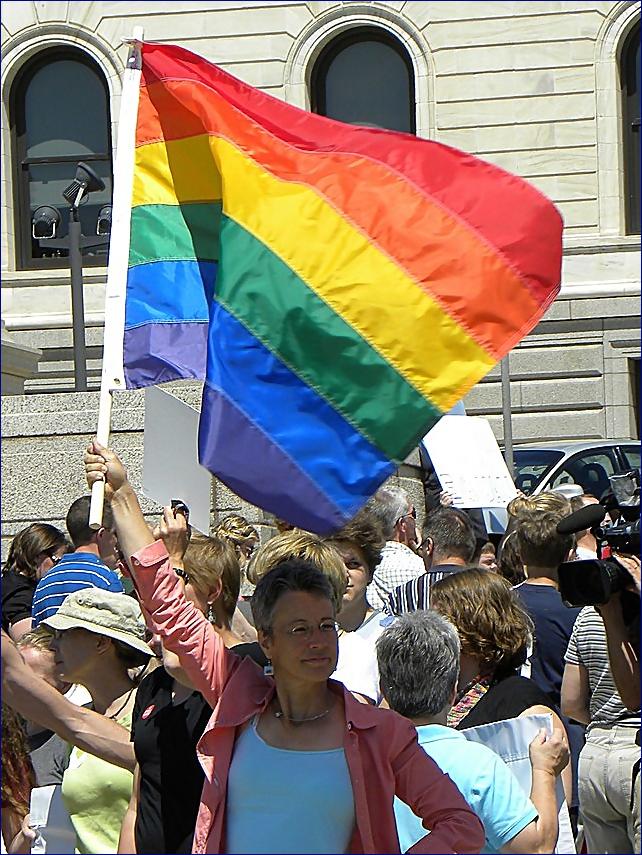On Tuesday 13 June, a happening for human rights had taken place nearby. Among other things, there were panels with photos and authentic stories. It may look like a detail, but as long as (for example) a school can ban one of the two mothers from attending the daughter's graduating ceremony, we cannot talk about balanced family laws. And until the term "marriage" is used universally, some gap for inequality may occur any time.
The so-called traditionalists in the Czech Parliament certainly don't think of everyday injustice (and the ways it can be shown). They even fail to remember the Bratislava tragedy on 12 October 2022 (when, in a neighbouring country, a young fanatic shot two gays near a LGBT club). During the Prague parliamentary discussion, insensitive statements accumulated rapidly. Klára Šimáčková Laurenčíková – the Czech Government Commissioner for Human Rights – wrote that such statements were shameful and hurtful. Subsequently, some individual members of the Christian Democratic Party refused their colleagues' arrogant rhetoric as well.
Another political subject whose members mostly oppose marriage equality is the right-wing Civic Democratic Party (ODS). Needless to add, it regularly presents itself as pro-Western. Most of its MPs should therefore be more consistent then they are now. Their rigidity is already challenged even by the international situation: Before any real progress could be achieved in Prague, the Czech Republic had been surpassed by Cuba, Slovenia, and Estonia; in all these countries (which share the first-hand experience with the Communist system) the marriage equality had been approved.
Fortunately, the current Czech President Petr Pavel publicly speaks in favour of this legislative change. According to the survey, around 65 per cent of the Czech population support it as well. If this is really the situation, could the (tediously repetitive) parliamentary procedure be replaced by popular vote?


Diskuse